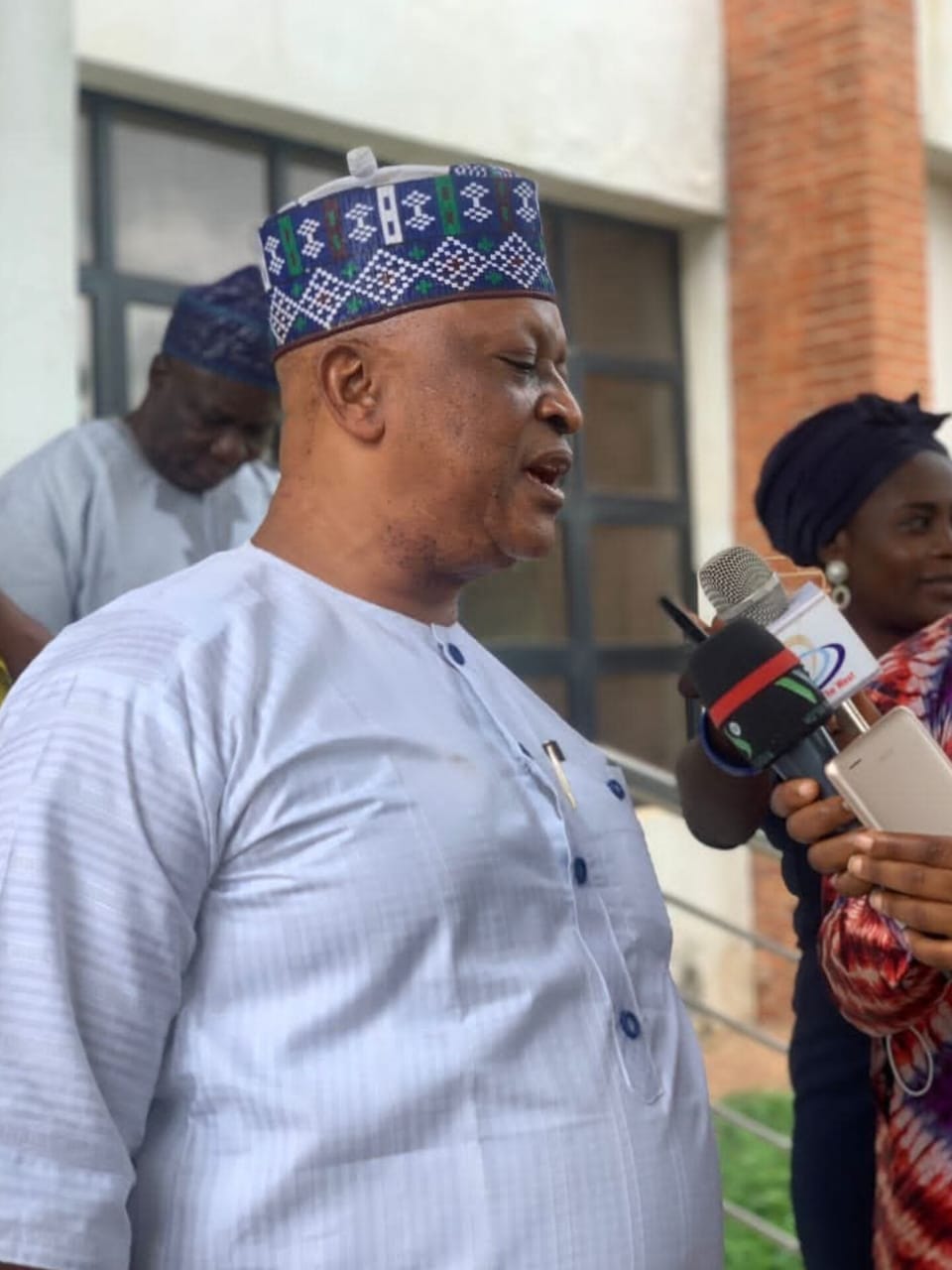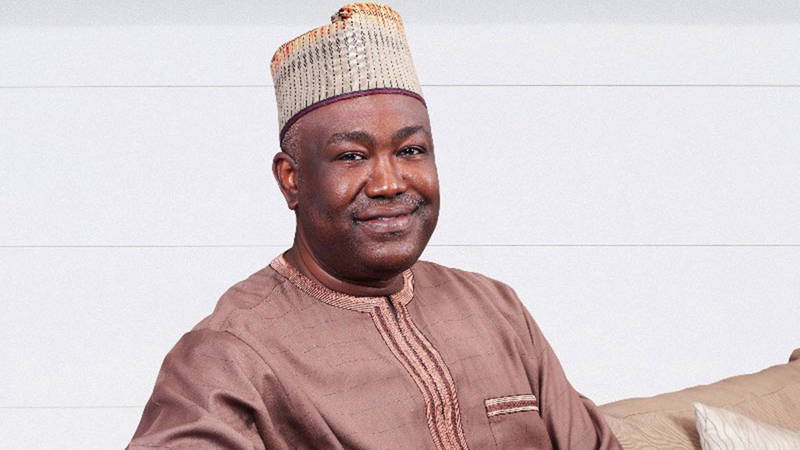Obasanjo: The burden of a ‘busybody’
[ad_1]
Chief Olusegun Obasanjo, former military Head of State and civilian president, is never out of the news, and his New Year Day letter addressed to Nigerian youth asking them to elect the presidential candidate of the Labour Party, Peter Obi, during this year’s February election, is only the latest in the series of missives that have managed to stir both anger and joy in equal measures along Nigeria’s beleaguered landscape. In the letter titled ‘My appeal to all Nigerians particularly young Nigerians,’ the Owu-born General wrote lines that set the polity on fire: “None of the contestants is a saint but when one compares their character, antecedent, their understanding, knowledge, discipline and vitality that they can bring to bear and the great efforts required to stay focused on the job, particularly looking at where the country is today and with the experience on the job that I personally had, Peter Obi as a mentee has an edge.”
Like millions of Nigerians, Obasanjo sees the 2023 presidential contest as a three-horse race involving Chief Bola Ahmed Tinubu of the ruling All Progressives Congress (APC), Alhaji Atiku Abubakar of the main opposition Peoples Democratic Party (PDP) and Mr Peter Obi of the fringe Labour Party. The trio are all ex-leaders in varying capacities: Tinubu is an ex-senator, ex-governor and national leader of the APC who is banking on his network of friends in the North and his vast Lagos war-chest to clinch the coveted prize.
Atiku, a former vice president, has been in the presidentical race since the defunct Social Democratic Party (SDP) primary in Jos, Plateau State in 1992, a race won by the late Basorun MKO Abiola, and is the most politically experienced of the trio. Obi, for all practical purposes the outsider in Nigeria’s political nexus, is the rebel with a cause who wants to upend Nigeria’s political establishment riding on the waves of people power.
Obasanjo, like in previous dispensations, has interracted with and hosted both Tinubu and Obi in his Ota home, a centre to which presidential candidates traditionally pay homage, and had offered praise and flattery for both. He told Tinubu that he had invented some political lexical items (Emilokan, O lule) and that Nigerians were going to be using them no matter what, and told Obi that Nigeria truly needed a new order. But many had suspected all along that the former president, much in the character of Tinubu himself who in his Lagos lair is renowned for anointing candidates and then looking towards others for the future, was looking at neither Tinubu nor Atiku, his ex-deputy with whom he nurtures a love-hate relationship, in his 2023 binoculars. He wrote: “Peter…is a needle with thread attached to it from North and South and he may not get lost. In other words, he has people who can pull his ears, if and when necessary. Needless to say that he has a young and able running mate with a clean track record of achievements both in public and private life.”
And he constructed his rejection of the two others in scathing terms, setting up a binary dichotomy between Obi and his more illustrious opponents. His verdict: “Emi Lokan’ (My turn) and ‘I have paid my dues’ are one are the same thing and are a wrong attitude and mentality for the leadership of Nigeria now. They cannot form the new pedestal to reinvent and to invest in a new Nigeria based on an All-Nigeria Government for the liberation and restoration of Nigeria.”
He did not stop there. He went straight for President Muhammadu Buhari and took him down with a brutal shot. Characterising the seven years of the administration of President Muhammadu Buhari as hellish, he said: “We have moved from frying pan to fire and from mountain top to the valley.” He then rallied the youth with powerful lines: “My dear young men and women, you must come together and bring about a truly meaningful change in your lives. If you fail, you have no one else to blame. Your present and future are in your hands to make or to mar. The future of Nigeria is in the same manner in your hands and literally so… Get up, get together, get going and get us to where we should be. And you, the youth, it is your time and your turn. ‘Eyin Lokan’ (Your turn).”
Because, per presidential spokesman Garba Shehu, governments rise and fall with Obasanjo’s letters, the polity has since January 1 been oven-hot, with the Ota farmer either quartered by supporters of the unadopted contenders, or venerated by the acolytes of the chosen one.
The deflated candidates responded, but it was the Buhari government that stoked the most fire. The ex-president, the president’s spokesman said, was morally bankrupt, and would not “stop being jealous of anyone who beats him to a new record in the nation’s development process.”
It then offered a history lesson excavating Obasanjo’s dark past: “The former president deployed federal machinery to remove governors Joshua Dariye, Rashidi Ladoja, Peter Obi, Chris Ngige and Ayo Fayose from office. They were the then governors of Plateau, Oyo, Anambra, Anambra and Ekiti states, respectively, unjustly removed using the police and secret service under his control. Under him, a five-man legislature met at 6 am and ‘impeached’ Governor Dariye in Plateau; 18 members out of 32 removed Governor Ladoja of Oyo from office; in Anambra, APGA’s Governor Obi was equally impeached at 5:00 a.m. by members who did not meet the two-thirds required by the constitution.”
The spokesman of the PDP Presidential Campaign Council, Daniel Bwala, accused the General of seeking ‘a third term’ by proxy, and insisted that “Nigerians would decide, and this they would do, not on the basis of a letter by a man seeking a third term by proxy, but by their own assessment of who amongst the candidates presents the case they believe warrant their votes.’’ According to him, other former presidents were minding their businesses whilst playing the role of fathers of the nation, and “none is so domineering, controlling and meddling with the affairs of the nation like Obasanjo.’’ Joining the fray, the Adviser, Media, Communications and Public Affairs of the Tinubu-Shettima Presidential Campaign Council, Dele Alake, pointed out that the ex-president had no moral compass to lecture any citizen on leadership “with his notorious antecedents in Nigeria’s political history.’’ Alake was particularly pained that “In endorsing Obi, Obasanjo resorted to verbose and nebulous generalities without telling Nigerians in concrete terms what were his preferred candidate’s track record of performance as governor in Anambra State.”
Naturally, the Obi-Datti Presidential Campaign Council was in an exultant mood. Its spokesman, Yunusa Tanko, raised posers for the naysayers: “If Obasanjo has no electoral value, why are they all running after him? Why did ‘Emi lo kan’ and Atiku visit him? The truth is that Obasanjo appeals a lot to the largest demographic in our electoral system, which is the Nigerian youth.” On the other side of the spectrum, the pro-Obi Human Rights Writers Association has described those against Obasanjo’s endorsement of the LP standard bearer as anarchists. Its chairman, Emmanuel Onwubiko, declared that any politician or presidential candidate against Obi’s endorsement was not a genuine democrat, as democrats are guided by tenets of fundamental freedoms, enshrined in the 1999 Constitution.
There is a major reason the reaction to Obasanjo’s burdensome letter is generating such hot reactions: the political season. There was always going to be controversy over Obasanjo’s choice. Besides, it is a just charge that OBJ often speaks where silence is safety. He must therefore bear the burden of his intervention, good or bad. However, given the incongruity of running a federation in which certain demographics are precluded from power while not being allowed to pull out of the same federation, there is definitely merit in Dr. Mathew’ Obasanjo’s current crusade. History is replete with the bitter contest between the old and the new. And the days to come will show why this is always the case.
[ad_2]














Post Comment